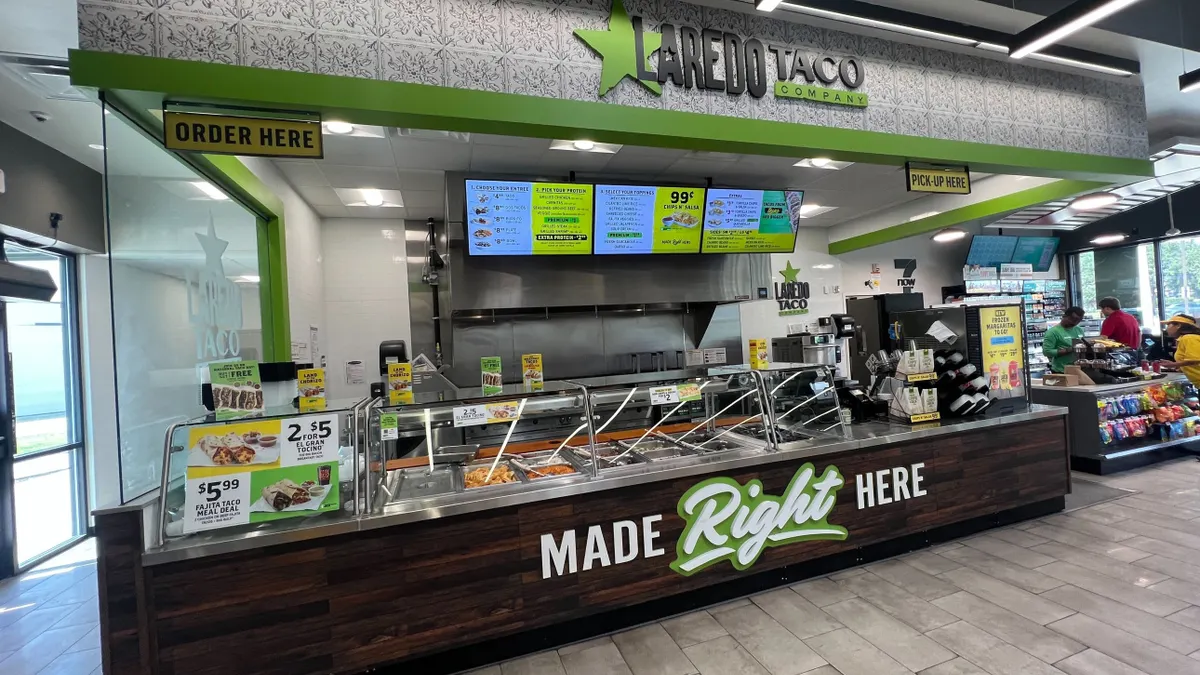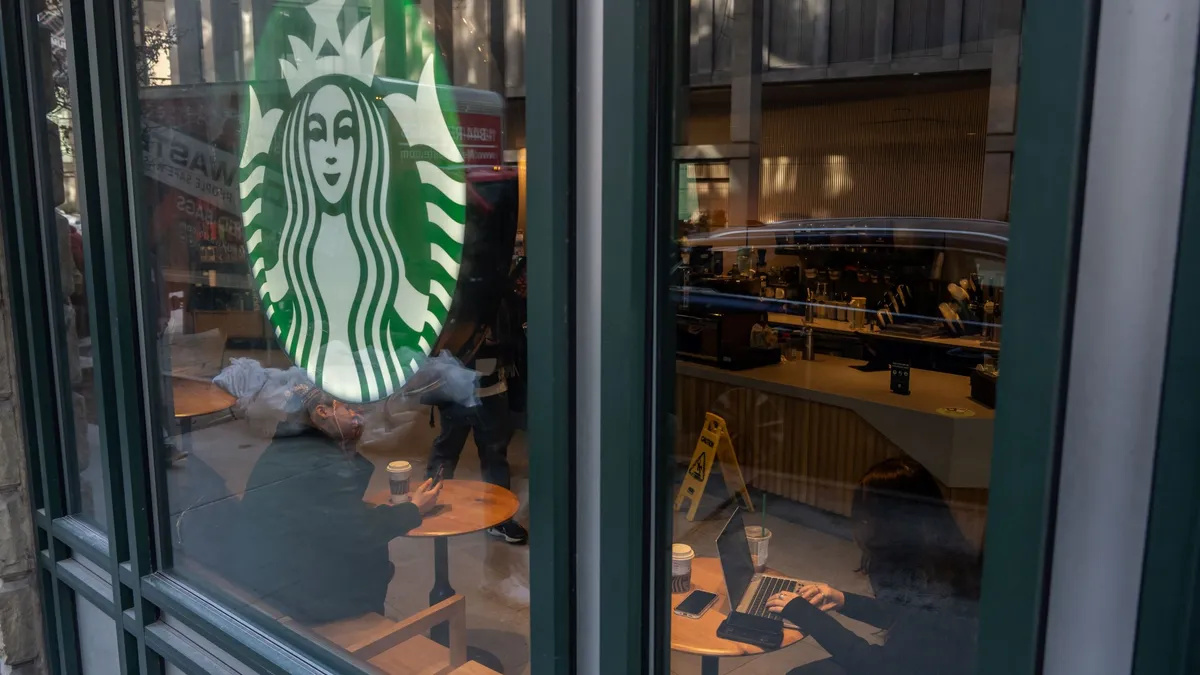The following is a guest post by Sean Kennedy, EVP of public affairs for the National Restaurant Association.
This opinion piece is part of a package that explores arguments in support of and against the Raise the Wage Act. Read One Fair Wage's article in support of the proposal here.
The coronavirus pandemic has devastated families and businesses in this country. In the restaurant industry, we have struggled to keep our doors open amid ongoing shutdowns and capacity limits. Stretched to the brink financially, many restaurants have had no choice but to turn the lights off for good. The United States has lost at least 110,000 restaurants, and over 2.5 million of our workers are without an industry job today. Restaurants that have served our communities for generations have suddenly gone dark, and our hearts break each time a city loses something so dear to its fabric.
But our industry is one of tenacity, ingenuity and passion. Every restaurant starts with an owner's dream to nourish and delight a community. The National Restaurant Association and our state partners will continue to lead the efforts to provide real relief from our federal, state and local governments while the pandemic pushes us to the brink.
The introduction of the Raise the Wage Act is the wrong proposal at the wrong time for the restaurant industry — dramatically raising labor costs at a time when operators are questioning if they can survive another month and eliminating the tip credit at a time when servers are relying on the local minimum wage and their tips to weather the economic storm.
Wage hikes hurt restaurants
Restaurants are a unique industry, with a unique workforce that cannot accommodate a national increase to a $15 minimum wage over a four-year period. Wage legislation should reflect local costs of living, local labor trends and a proper analysis of the workforce.
The average restaurant spends more than a third of its budget on workforce. As a result, it cannot absorb a dramatic cost increase and higher wages without cutting back on worker hours and/or eliminating positions. And, when labor costs climb, employers in labor-intensive industries like restaurants are forced to raise menu prices, pushing up consumer costs.
As the pandemic has highlighted, the economic realities of each state are very different. In some states, this would represent more than a 600% increase in labor costs — an insurmountable challenge for many operators in states where restaurant jobs are most needed for recovery.
Understanding minimum wage earners
Most minimum wage earners in restaurants are overwhelmingly young, are students, live in a household where others are primary earners and work part time.
According to the Bureau of Labor Statistics' most recent data on minimum wage earners at restaurants: 50% are teenagers; 74% are under the age of 25; 59% are students between the ages of 16-24; 16% are heads of their household while 59% are children or grandchildren of the household head; 86% are single while just 10% are married. A full 86% of restaurant employees who earn the minimum wage work part time because restaurants are a leading destination for teenagers as a first job to gain skills and experience to move up the ladder or as side income to help pay for an education.
Servers and consumers support tipping
The Raise the Wage Act also takes a "solution in search of a problem" approach to tipping.
Many employees are paid a combination of wages plus tips — what restaurants call the tip credit. Every restaurant server is guaranteed the minimum wage by their employer — period. The combination of an hourly rate and tips must reach the minimum wage, or the restaurant owner is responsible for the difference. No exceptions. But as many restaurant workers will tell you, customer tips will increase their pay dramatically. Most servers make between $19-$25 an hour under the tip credit system.
The Raise the Wage Act would eliminate the tip credit in the 42 states where it is used. If this happened, many restaurants would end their wage-plus-tips system altogether and move to a straight hourly wage model. Tipped employees would likely earn far less than they currently do, and restaurants would be forced to reduce employee hours or operate with fewer employees.
Whether it is a first job, a career, a second family income or a second chance, the earning potential from tips is a top reason cited by employees when they choose the industry, according to a survey commissioned and reviewed by NRA economists in 2016. High-quality tipped guest services are a hallmark of the U.S. restaurant industry — a factor consumers recognize when asked why they enjoy eating out.
Hospitality is not a product — it is a service provided by people taking care of other people. Employees and consumers embrace this, and that is why no jurisdiction has eliminated the tip credit in over two decades. Over the last few years, in response to initiatives or legislative attempts in Chicago, Maryland, D.C., Michigan, Virginia, New Mexico and Maine, tipped workers spoke out in force about why they like the tip credit, and each measure overwhelmingly failed.
Restaurants in the U.S. have long set the standard for hospitality, creativity and innovation — and one of the biggest reasons for this success is the people who comprise our industry. From top to bottom, regardless of the size or type, or name on the door of the place where they work, no other industry comes close to matching our record for offering opportunity and a path to the American dream.
We're proud that our workforce is more diverse than any other sector of the economy; it includes more women and managers of color than any other industry. Restaurants have more diverse ownership than any other sector of the economy. The melting pot of this country is exemplified by the restaurant industry — a workforce of people from every corner of the world welcoming us to their tables in the spirit of hospitality.
Whether that hospitality is burgers to-go for a busy family, a special occasion event, a regular coffee spot or a chance to sample world-class creativity while traveling or visiting a new city — you can't have a restaurant without that core element of service. That's why tips and wages are so important to restaurants and their employees, and why change can't be shoehorned in during a time of social and political crisis.
The Raise the Wage Act isn't right, but we can find consensus on what is.
The time has come for a robust and bipartisan conversation about wages for our nation's workforce — including the restaurant industry. The National Restaurant Association and our members are eager for this conversation, and we look forward to engaging with Congress and the Biden administration to shape changes that benefit employees and restaurants alike.



















